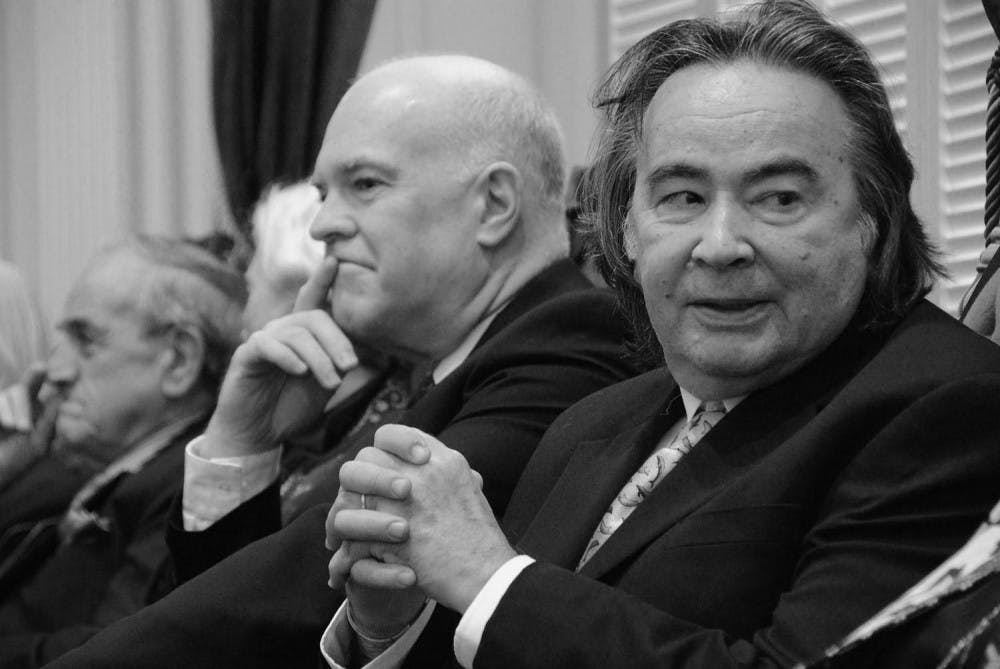MONTPELIER — As questions of campaign controversy continue to dominate the news in Washington, D.C., the Vermont state legislature has decided to take a deeper look at campaign finance closer to home.
On Wednesday, Feb. 28, the Vermont Senate approved a ban (S.120) intended to keep corporate cash from funding Vermont politicians, passing it on to debate in the House.
Many of the lawmakers in the room may have experienced a déjà vu of sorts, as the Vermont Senate worked on a similar bill five years ago — albeit with a vastly different outcome.
In 2013, the Vermont Senate abruptly reversed its decision on a corporate donation ban after preliminary approval, ultimately passing a campaign-finance bill that had no bans on corporate or union donations. This week, the bill was approved by the state Senate, with a Wednesday vote of 23 in approval and 7 against.
“It’s been a long time coming, honestly,” said Anthony Pollina, a Progressive/Democratic state senator and the bill’s primary sponsor. “I’m really glad we were able to pass it . . . the last couple years there was a lot of resistance to wanting to do this.”
Pollina is likely referencing the largest pushback against the bill, and the reason why the similar 2013 bill was stripped of its fighting power against corporate cash: a perceived lack of necessity. In 2013, Democratic State Senator Ann Cummings suggested that the corporate ban might do more harm than good. Cummings was one of the 2013 senators who flipped their vote from “yes” to “no” between preliminary approval and the final 2013 vote. She was quoted by Seven Days in 2013 quipping, “We’re Montpelier. We’re not D.C.”
“I still haven’t heard of a problem that justifies making it more difficult to raise the funds you need to run for office,” she explained to Seven Days. Cummings, who voted against the 2013 bill, was one of those who voted in favor of the new proposed legislation. Despite her recent vote, she and other lawmakers continued to voice concern that the bill would unnecessarily complicate campaign fundraising. A few lawmakers, even those who ultimately voted for the bill, noted that many “corporation” donations in Vermont certainly aren’t from corporate giants: As Senator Jane Kitchel told Seven Days, “When people think of corporations [. . .] they don’t think of a local grocery store or a local hardware store sending a check.”
Sen. Pollina was troubled with the suggestion that this new law would complicate fundraising in a state like Vermont.
“In Vermont, if you can’t get elected with money from people, then maybe you shouldn’t be elected,” he commented wryly, saying that much of the bill pushback was justified with “silly excuses.” Pollina continued: “Most of these corporations aren’t just giving money out of the goodness of their heart, they’re also giving money so that when it comes down to it they can pressure you . . . there are definitely [Vermont politicians] who have gotten money from Monsanto [Biopharmaceuticals], tobacco companies, pharmaceuticals, beverage companies . . . it’s not just small businesses, there are definitely big out-of-state corporations that are funding politicians.”
Paul Burns, the executive director of Vermont Public Interest Group, explained that the bill “makes it easier for people to know whether they can donate, and it makes it easier for politicians to know whether they can use it.” Specifically, the bill would help prevent “double dipping,” a phenomenon where an individual can give a maximum donation twice, under a personal name and under a company name. “One person can build LLCs which can allow them to max out under multiple corporate entities,” Burns described. The bill would prevent this corruption of the existing law, largely by having both personal donations and affiliated business donations count against a single maximum giving value per person.
“I think it’s a great idea,” said Jim Condos, Vermont’s secretary of state. “I think it’s about time that we’ve done this — we need to take corporate money out of politics as much as possible.” Condos’ office oversees Vermont’s elections, along with lobbyist registrations and campaign finance filings. If passed in the House, the bill would take effect next year, after the 2018 election season.
Vermont State Senator Christopher Pearson (P/D – Chittenden), another strong supporter of the bill, agrees with Pollina and Condos.
“If you look at campaign finance filings . . . you’ll see a corporate owner donating, the owner’s spouse donating and the corporation donating, and they’ll all max out,” he explained, mentioning the concept of double-dipping that the bill would crack down on. “They can effectively double the limit of what you and I can give as an individual . . . that irks me. That undermines the democratic process, making people feel like corporations have more of a voice than individuals.”
Pearson brought up Sen. Bernie Sanders’ 2016 presidential campaign, saying, “The grassroots are really ready for a completely different system, one that is driven by regular people. . . . Bernie set off on a principled stance that he would be fueled by the grassroots . . . frankly, people dismissed his chances.” Looking at Sanders’ unexpected and impressive success with grassroots fundraising, Pearson noted that “he proves the appetite for that kind of approach for campaigns . . . and it also proves that we have a lot of power.”
That power will be debated in the Vermont House these coming weeks, as the bill undergoes the next phases of the legal process.
“I’m hopeful,” Pearson ultimately expressed. “We’ll be working to get colleagues over there to keep moving this forward.”



